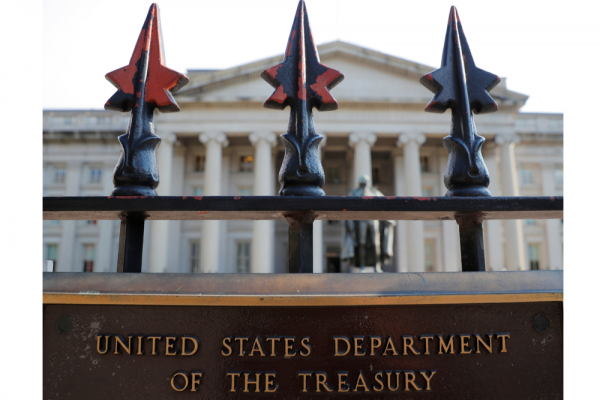For many, tax season is the oft-delayed, long-dreaded time of year where you try to remember the difference between various IRS forms, find your PIN number, and make sure you have your paperwork in order.
Others, however, find tax season to be a time to reaffirm their spiritual commitment to not paying for war. War tax resisters, sometimes known as war tax refusers, are conscientious objectors who resist federal income taxes through a variety of methods. Many of these war tax resisters are inspired by the historic resistance found in Anabaptist, Quaker, or Catholic traditions, and they believe Jesus’ instructions on nonviolence extend to their finances.
“I accept my obligation to pay taxes, but because of this theology of the historic peace churches that is integral to my faith, I think that war and preparation for war is contrary to the will of God as revealed in the teachings of Jesus,” H.A. Penner, a Mennonite and lifelong war tax resister, told Sojourners. “As a result, I’m compelled by my conscience to resist the payment of taxes that underwrite warfare. U.S. taxpayers should have the right not to kill.”
How to resist war taxes
For those who choose to become tax resisters, there are many methods of resistance.
Penner and his wife, Barbara, are among those who withhold a symbolic portion of their federal taxes; the Penners withhold $10.40 as a nod to IRS Form 1040, which is used to file personal federal income tax. Other war tax resisters designate anywhere from $1 to half of their tax obligation, as some anti-war activists estimate about half of income taxes go toward war.
Although withholding such amounts may seem to be no more than a symbolic gesture, advocates say it still serves a purpose.
“At the end of the day, it’s still an act of resistance that does cause problems for the IRS, but the risk to that individual becomes much smaller and hopefully more manageable,” Lincoln Rice, coordinator of the National War Tax Resistance Coordinating Committee, told Sojourners.
Resisters don’t tend to financially benefit from their objections, as most redirect the amount withheld by sending it to peace groups or mutual aid. Mennonite Church USA has a Church Peace Tax Fund, which supports peace education efforts and individual war tax resisters.
Even though decades of withheld funds might only equal “part of a wing on a jetfighter,” Rice said the amount redirected could make a big difference for a local organization. This form of resistance doubles its impact by putting toward peace what the government intends for war.
Regardless of method, if you keep a portion of your taxes from the IRS, you can expect to get certified mail from the IRS, Rice said. He said that the IRS’ tactics mainly involve sending threatening letters, adding penalties to the amount owed, and occasionally garnishing wages or seizing funds through a bank account.
NWTRCC has only found one instance of a war tax resister being jailed since 1950. And since 2000, NWTRCC hasn’t found any instances where the IRS seized a war tax resister’s property.
Some resisters do choose to pay, but they deliver payment in thousands of coins, bills, or checks — or even write the check on a coffin to symbolize paying for death — all methods that create extra work for the IRS, which resisters see as a legitimate form of protest.
Living below taxable levels
For others, however, the risks associated with refusing to pay taxes — and other concerns about environmental collapse — have led them to live below taxable income levels. Kathy Kelly, a prominent peace activist and author, began war tax resistance in the early 1980s, and hasn’t paid federal income tax since then.
As Kelly deepened her understanding of the consequences of militarism, “it seemed necessary to say, ‘I can’t in conscience turn around and pay for exactly what I’m trying to campaign against,’” Kelly told Sojourners. “There was a sense of needing to speak clearly and pay up personally, and war tax refusal was a means to do that.”
When Kelly first began refusing to pay taxes, she had her employer lower her salary beneath the taxable requirement. When the IRS tried to garnish wages for her unpaid taxes and penalties, she quit her job and finished the year as a volunteer. Kelly said that she essentially made the IRS her “spiritual director,” as her commitment forced her into living with a reduced income.
Rice and Kelly both live below taxable amounts, having asked previous employers to reduce their wages. Some resisters take advantage of a variety of tax loopholes, while others simply move toward sustainable, agrarian living.
Kyle and Katy Chandler-Isacksen, who live on a half-acre urban homestead in Reno, Nevada, have practiced simple living for over a decade as a way to resist war taxes, climate change, and other injustices of contemporary society. Although they identify as non-religious, their practice of simple living has often been intertwined with and encouraged by local Quaker meetings and the larger philosophies of the Catholic Worker Movement.
“We found the Quakers very inspiring, historically, with their direct connection with God, their values of simplicity, and the history of being a peace church,” Kyle Chandler-Isacksen said. “So that was definitely an influence for us.”
He said tracking where their money went — and how it impacted others — was what spurred them into living simply. They now live without fossil fuels, farm their own animals and produce, drive an electric car, and practice other methods of Earth-based living.
Making war tax refusal legal
In United States history, Quakers are recorded as resisting taxes in the 1700s and 1800s. Henry David Thoreau published Civil Disobedience in 1849 after he spent a night in jail for refusing such taxes, and the text served as inspiration for resistance in the next century.
The height of war tax resistance and refusal in the U.S. was during the 1960s and ’70s. As protests against the draft and Vietnam War grew, so too did resistance. In 1968, around 500 prominent writers and editors — including James Baldwin, Daniel Berrigan, Howard Zinn and Gloria Steinem — pledged not to pay some or all of their federal income tax for the year.
“I had a brother who was put in jail for refusing to go to war, and the least I could do — not being subject to the draft myself — was refuse to pay for war voluntarily,” Elizabeth Boardman, a Quaker in California, told Sojourners. “What do the Ten Commandments say? ‘Thou shalt not kill.’ And to me that means ‘Thou shalt not pay somebody else to kill in your place, either.’”
Rep. Ron Dellums (D-Calif.) introduced the first iteration of the Peace Tax Fund Bill in 1972 to honor those who objected to paying for war. The bill would have allowed conscientious objectors to redirect their income tax to peace efforts instead of war. The bill has been reintroduced in Congress several times since then, and the House of Representatives subcommittees held hearings on the bill in 1992 and 1995. The most recent iteration of the bill was introduced by the late John Lewis in 2019.
Currently, the National Campaign for a Peace Tax Fund, the campaign dedicated to advocating for the Peace Tax Bill, is in communications with a member of Congress on reintroducing the bill anew. Malachy Kilbride, executive director of the NCPTF, said he anticipated an announcement in the coming weeks.
The bill would allow those who object to paying for war to pay their taxes to a government fund that would be allocated for non-military purposes. The Congressional Joint Committee on Taxation found that a peace tax fund would increase overall revenue as resisters would begin paying the full amount and the IRS would no longer have to spend resources on enforcing collection.
Supporters of the Peace Tax Fund bill include war tax resisters as well as those who currently pay taxes but remain deeply conflicted “because they know a large percentage of their income taxes go toward militarism and war,” Kilbride said.
No one knows exactly how many war tax resisters there are — sources interviewed for this story estimated anywhere from 1,000 to 10,000. Rice said that fear of the IRS keeps many war tax resisters from identifying themselves openly.
Whatever the number, there is a general spirit of respect for any and all methods used to resist war taxes.
“People are opening themselves up to a lot more personal risk, possibly for their family also,” Rice said. “Within the movement, because of the risks that can be involved, there’s a deep respect for anyone who’s walking any of those paths.”
Got something to say about what you're reading? We value your feedback!







